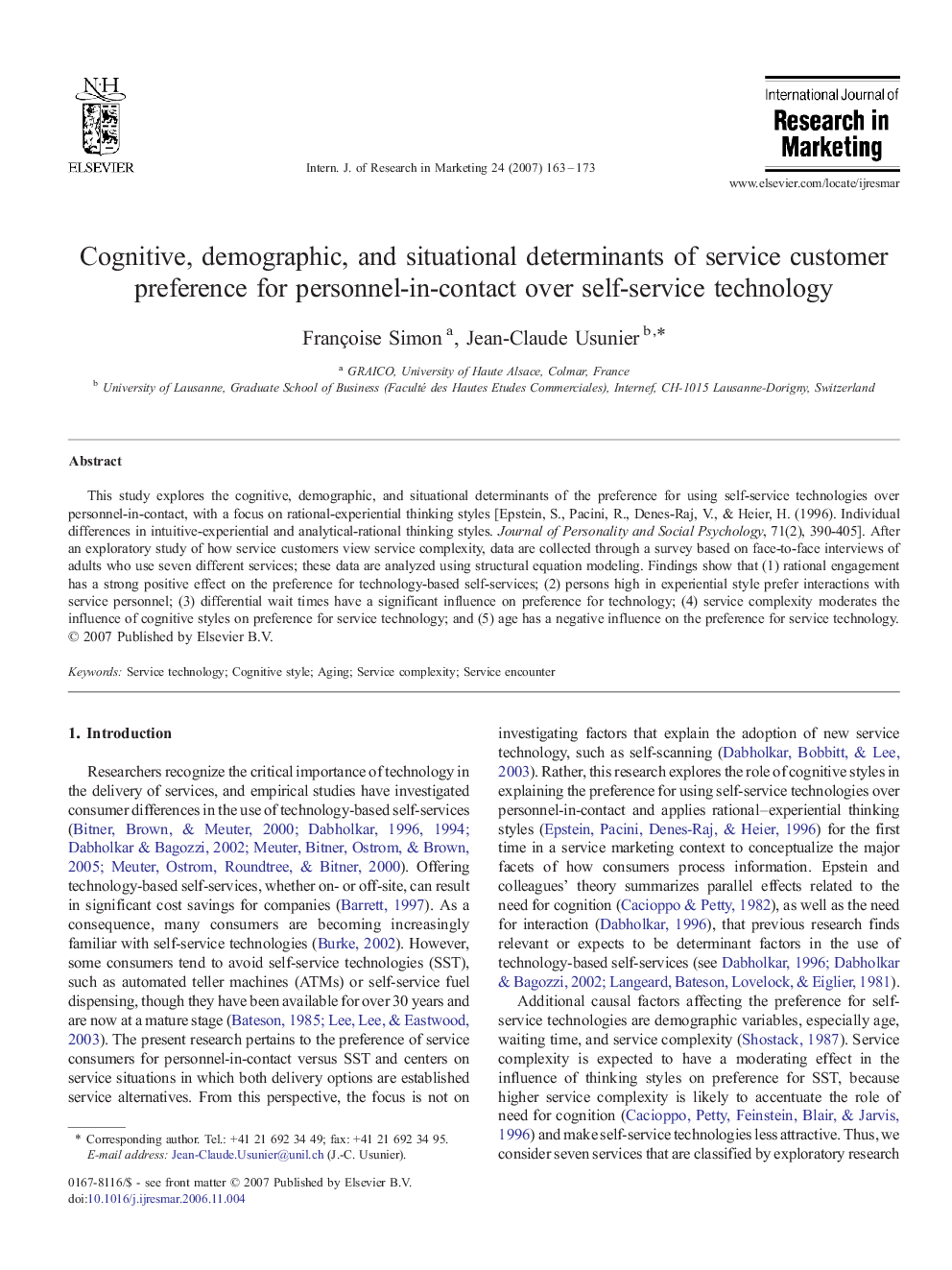| Article ID | Journal | Published Year | Pages | File Type |
|---|---|---|---|---|
| 880516 | International Journal of Research in Marketing | 2007 | 11 Pages |
This study explores the cognitive, demographic, and situational determinants of the preference for using self-service technologies over personnel-in-contact, with a focus on rational-experiential thinking styles [Epstein, S., Pacini, R., Denes-Raj, V., & Heier, H. (1996). Individual differences in intuitive-experiential and analytical-rational thinking styles. Journal of Personality and Social Psychology, 71(2), 390-405]. After an exploratory study of how service customers view service complexity, data are collected through a survey based on face-to-face interviews of adults who use seven different services; these data are analyzed using structural equation modeling. Findings show that (1) rational engagement has a strong positive effect on the preference for technology-based self-services; (2) persons high in experiential style prefer interactions with service personnel; (3) differential wait times have a significant influence on preference for technology; (4) service complexity moderates the influence of cognitive styles on preference for service technology; and (5) age has a negative influence on the preference for service technology.
